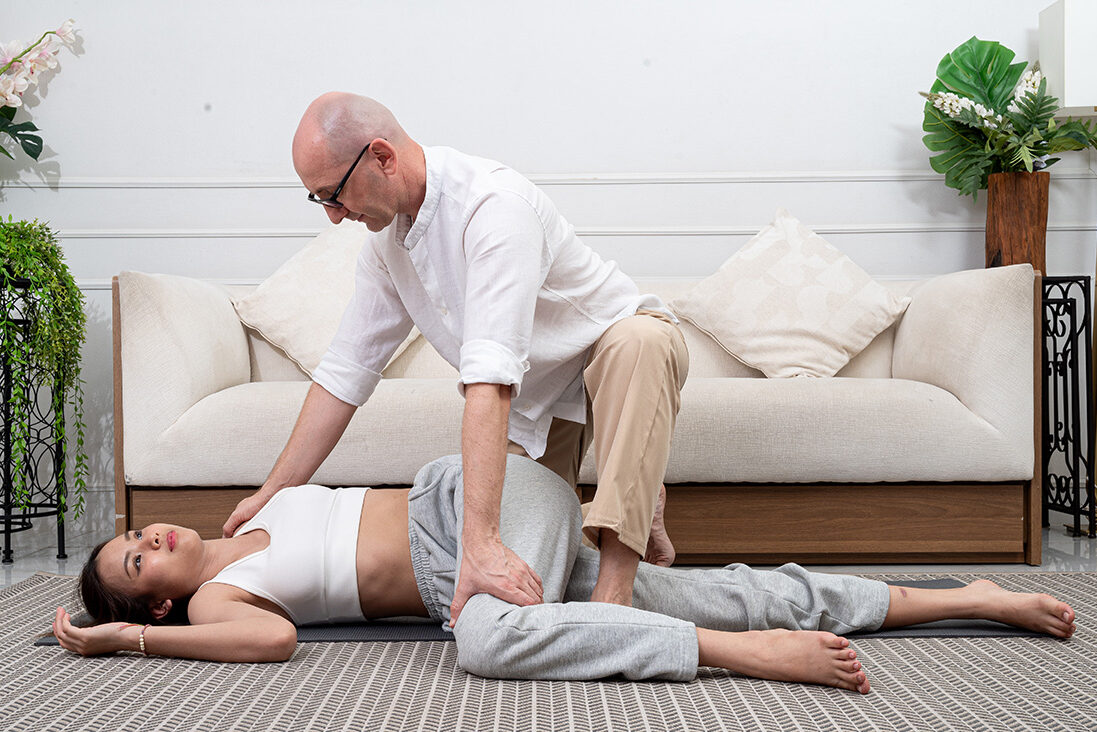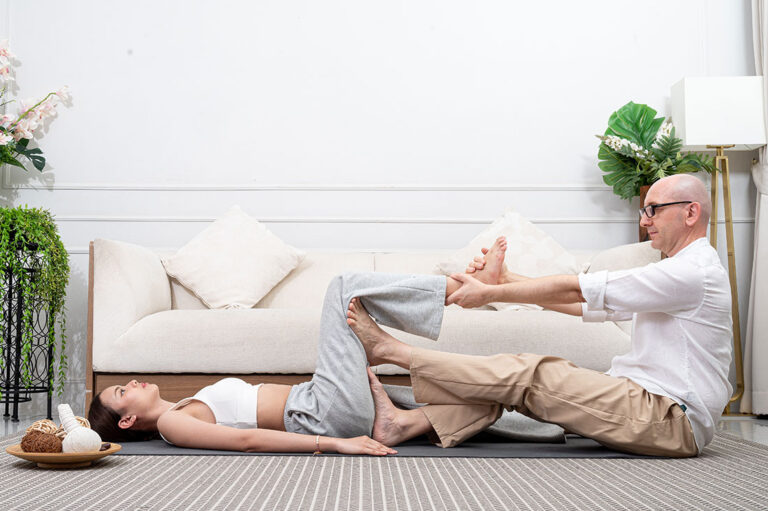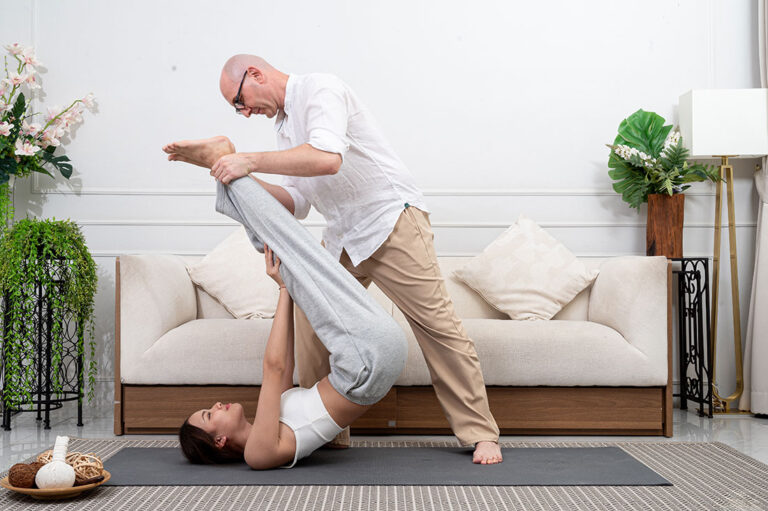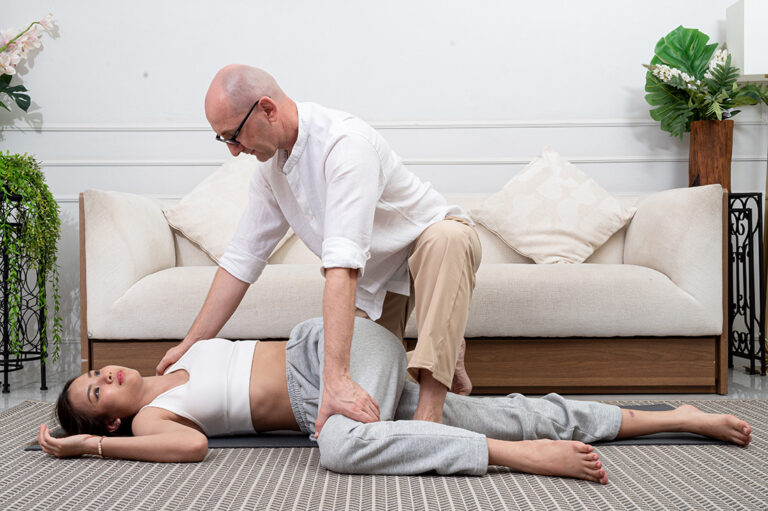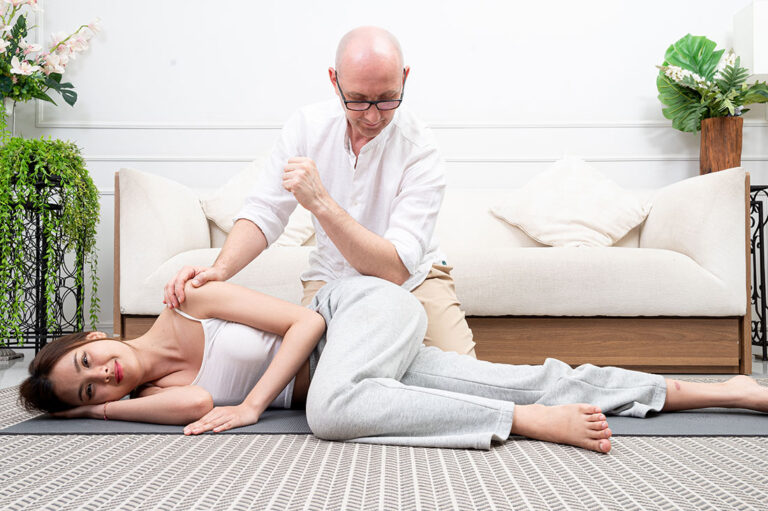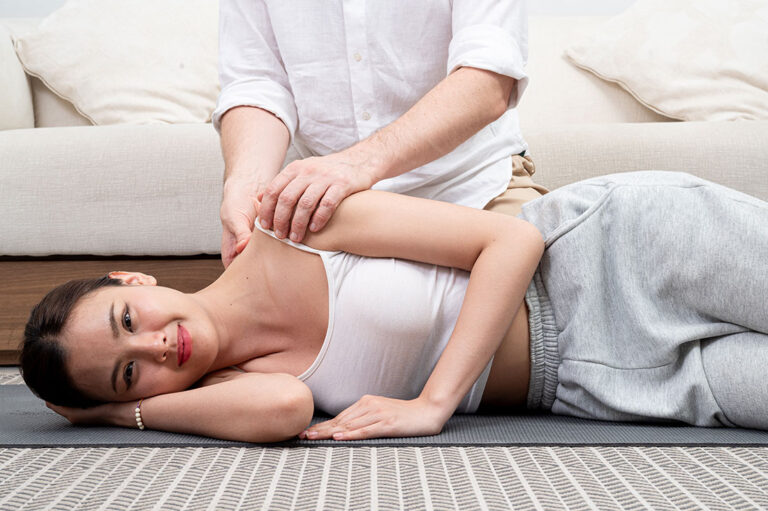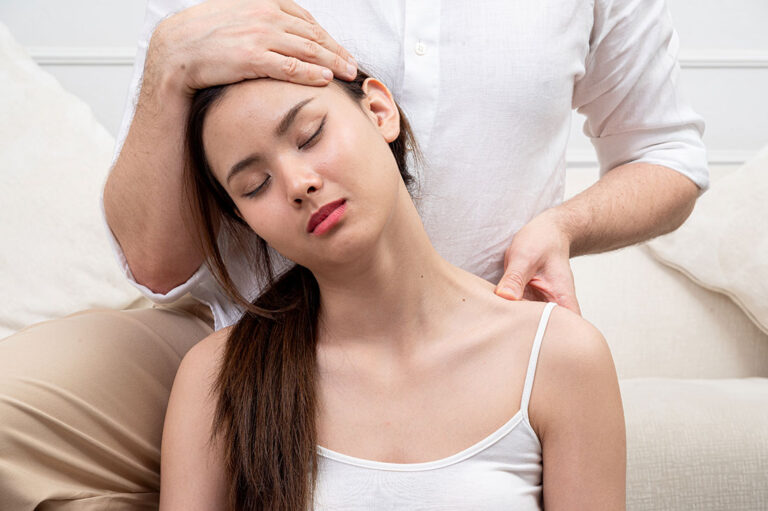Traditional Thai Massage – Module I
Master the essentials for delivering a comprehensive and effective Thai Massage, regardless of your level of experience – perfect for beginners.
What you will learn:
• Fundamentals of Traditional Thai Medicine.
• Proper execution of a 2 to 3-hour Thai Massage.
• Techniques involving fascial mobilization, joint mobilization and stretching techniques which can also be combined with other treatments.
• Safe execution of Thai Massage.
• Safe and ergonomic use of your body during the massage.
• Basic relaxation and breathing techniques.
• Basic Thai Yoga exercises.
• Practical tips on how to prepare yourself and the massage space.
Additionally:
• You will gain first-hand insight into Thai culture.
• You will meet other professionals and broaden your network
• You will find the time spent both enriching and enjoyable.
• Perhaps you will even plan a trip to Thailand…
Course Description:
You will learn a general Thai Massage according to the tradition of the Wat Pho School in Bangkok, the main school of Traditional Thai Medicine. This massage combines elements of Chinese medicine (acupressure), yoga postures and stretching. In contrast to yoga, in Thai Massage, the recipient remains passive, while all movements are skillfully executed by the masseur. This is why Thai Massage is often referred to as “Yoga for the Lazy” or “Yoga for Busy People”.
From the perspective of modern medicine, Thai Massage is a treatment belonging to the group of mobilization techniques, fascial techniques, as well as manipulations of the spine and limbs. This basic form of Thai Massage can be used preventively and for stress relief – restoring harmony and energetic balance to the body.
For Whom:
This course is suitable for anyone: for massage therapists, physiotherapists, beauticians or yoga practitioners as an effective method of biological regeneration, revitalization, as well as maintaining joint mobility and muscle flexibility. It will also benefit individuals unaffiliated with medicine, massage, yoga, or cosmetology, as the massage can serve as a means to strengthen family and partnership bonds.
Course Topics:
- Historical background, definition, main massage schools.
- Introduction to Traditional Thai Medicine: theory of the 5 elements, pressure points (acupressure), energy channel pathways.
- Indications and contraindications.
- Ethics of the masseur.
- Techniques of Thai Massage:
- Correct positioning of the therapist’s body.
- Skillful use of the therapist’s body weight during the treatment.
- Techniques for stretching limbs and the back.
- Pressure techniques.
- Thai Massage in four positions: supine, side-lying, prone, and seated.
- Abdominal massage.
- Comprehensive scheme of traditional Thai Massage.
- Practical advices on how to prepare a treatment room or space for performing Thai Massage.
The course places particular emphasis on massage practice, which constitutes approximately 90% of the course time. Participants will receive a certificate of completion in English.
Course Duration:
Three days, with eight hours dedicated to each day, including one-hour breaks.
The course will conclude with a practical examination on the final day.
Requirements:
- Eagerness to learn new massage techniques.
- Open-mindedness towards new sensations and experiences.
- Loose, non-restrictive clothing is required as the massage is performed on the floor.
- A positive mindset!
REMARKS:
- The course is based on knowledge imparted by the oldest and main Thai Massage school and Traditional Thai Medicine in Thailand, the Wat Pho School in Bangkok.
- As part of the course, participants will receive a workbook and a certificate.
- To receive the certificate of course completion, successful completion of the practical exam is required.

